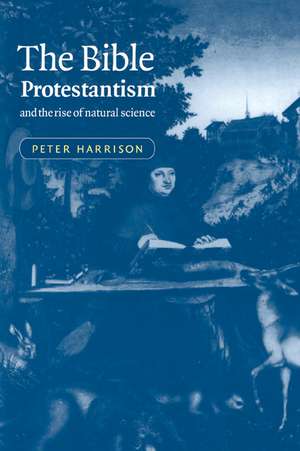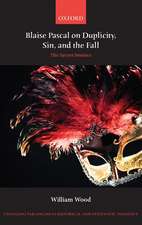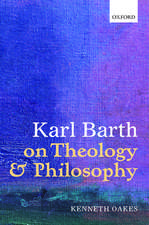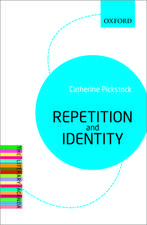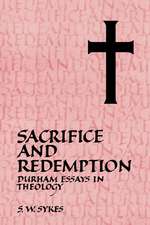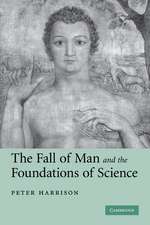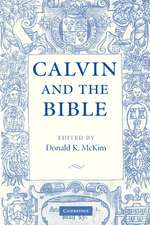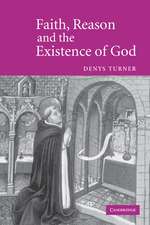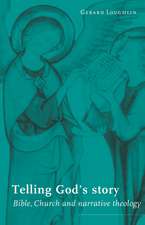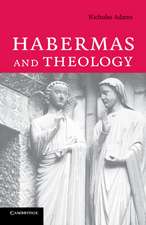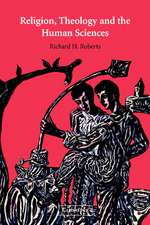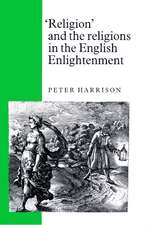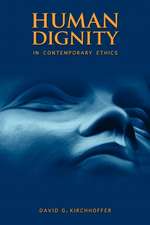The Bible, Protestantism, and the Rise of Natural Science
Autor Peter Harrisonen Limba Engleză Paperback – 25 iul 2001
| Toate formatele și edițiile | Preț | Express |
|---|---|---|
| Paperback (1) | 380.98 lei 43-57 zile | |
| Cambridge University Press – 25 iul 2001 | 380.98 lei 43-57 zile | |
| Hardback (1) | 698.30 lei 43-57 zile | |
| Cambridge University Press – 4 mar 1998 | 698.30 lei 43-57 zile |
Preț: 380.98 lei
Nou
Puncte Express: 571
Preț estimativ în valută:
72.92€ • 79.24$ • 61.30£
72.92€ • 79.24$ • 61.30£
Carte tipărită la comandă
Livrare economică 21 aprilie-05 mai
Preluare comenzi: 021 569.72.76
Specificații
ISBN-13: 9780521000963
ISBN-10: 0521000963
Pagini: 328
Dimensiuni: 153 x 228 x 19 mm
Greutate: 0.43 kg
Ediția:Revised
Editura: Cambridge University Press
Colecția Cambridge University Press
Locul publicării:Cambridge, United Kingdom
ISBN-10: 0521000963
Pagini: 328
Dimensiuni: 153 x 228 x 19 mm
Greutate: 0.43 kg
Ediția:Revised
Editura: Cambridge University Press
Colecția Cambridge University Press
Locul publicării:Cambridge, United Kingdom
Cuprins
Acknowledgements; Abbreviations; Introduction; 1. Worlds visible and invisible; 2. Sensible signs and spoken words; 3. The two reformations; 4. Re-reading the two books; 5. The purpose of nature; 6. Eden restored; Conclusion; References; Index.
Recenzii
'This is a learned book, enormously ambitious, clearly and elegantly written, copiously documented, subtly and persuasively argued. I do not believe it has any serious rival, for the boldness of its interpretations and the quality of its scholarship, among books on the relationship between Protestantism and science.' David C. Lindberg, Isis
'… an extraordinarily interesting and well documented study … In addition to its novelty, richness, and suggestiveness, Harrison's work is characterized by meticulous organization, felicitous formulations of the critical issues it addresses, and a very engaging style. It will make a lasting contribution to early modern studies in literature, religion, and the history of science.' Eileen Reeves, Renaissance Quarterly
'This is probably the most significant contribution to the early modern relationship between science and religion to be published for ten years; it will no doubt be much discussed and leave a permanent mark on our understanding of the issues with which it deals.' Fraser Watts, Expository Times
'… admirably lucid … an arresting and provocative thesis … Harrison's sophisticated analysis is essential reading for anyone interested in the field of science-and-religion. It will also appeal to historians of science wrestling with the enduring problem of why the sciences took off so spectacularly in Europe precisely when they did.' John Hedley Brooke, Metascience
'This is an impressive and important contribution to the burgeoning literature on the interrelations between science and religion in the early modern period.' Geoffrey Cantor, University of Leeds
'… an extraordinarily interesting and well documented study … In addition to its novelty, richness, and suggestiveness, Harrison's work is characterized by meticulous organization, felicitous formulations of the critical issues it addresses, and a very engaging style. It will make a lasting contribution to early modern studies in literature, religion, and the history of science.' Eileen Reeves, Renaissance Quarterly
'This is probably the most significant contribution to the early modern relationship between science and religion to be published for ten years; it will no doubt be much discussed and leave a permanent mark on our understanding of the issues with which it deals.' Fraser Watts, Expository Times
'… admirably lucid … an arresting and provocative thesis … Harrison's sophisticated analysis is essential reading for anyone interested in the field of science-and-religion. It will also appeal to historians of science wrestling with the enduring problem of why the sciences took off so spectacularly in Europe precisely when they did.' John Hedley Brooke, Metascience
'This is an impressive and important contribution to the burgeoning literature on the interrelations between science and religion in the early modern period.' Geoffrey Cantor, University of Leeds
Notă biografică
Descriere
An examination of the role played by the Bible in the emergence of natural science.
